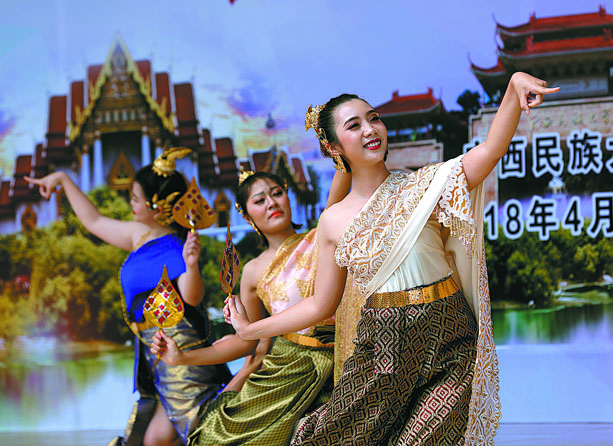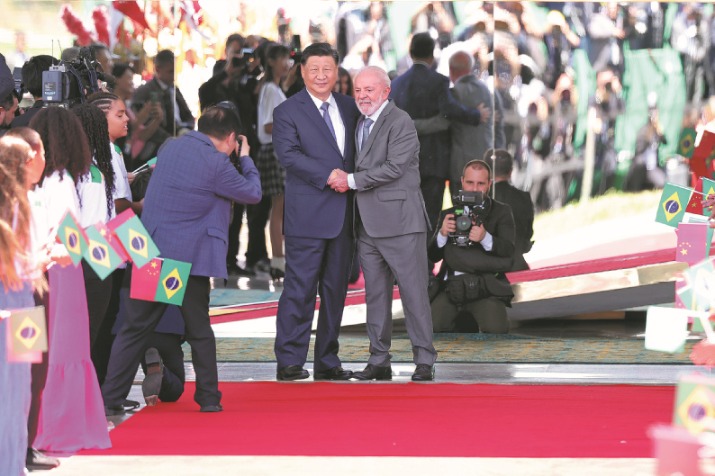Decades of exchange produce finest fruit


The Vietnamese capital, Hanoi, is just 30 minutes away by air, and the Laotian capital, Vientiane, is just 90 minutes away, Feng says. Convenient transport has greatly promoted communications among neighboring countries, so more international students have been attracted to apply to study in Guangxi, he says.
As education is part of the people-to-people communication, it should also be a dual process, he says.
"Since reform and opening-up began in the late 1970s, the university has also changed its educational model," he says. "We have international students come in, and should also have Chinese students go abroad."
Guangxi University for Nationalities was one of the first four national non-universal language centers in the country, specializing in languages of Southeast Asia since 1964, says Liao Dongsheng, secretary of the Party Committee at the College of International Education of the university.
"Because of the rich experience, we're able to improve communication and exchanges between China and ASEAN countries."
In the university, Chinese students who learn Lao can help Laotian students learn Chinese, and vice versa. "In two-way communication, speaking the same language is very important," Liao says.
"Our international graduate students even once complained that people from Beijing didn't speak standard Mandarin, and they couldn't understand," says Liao, laughing.























